

Celebrating 10 Years of Reparations
To commemorate the 10th anniversary of reparations, on May 31st we brought together a panel of some of the people who were integral to the movement: Mark Clements, Gregory Banks, Alice Kim, and the first journalist to uncover police torture in Chicago, John Conroy. The discussion was moderated by artist and activist Dorothy Burge.
Through collectively reflecting on this historic win, we hoped to nurture radical optimism and community power to continue the fight ahead. The panel took place at the First Presbyterian Church (6400 S Kimbark Ave )
We followed the panel with a beautiful community celebration at the Center.
Here are some highlights from the panel:
Dorothy Burge: As a reporter writing stories for the Chicago Reader newspaper and about Chicago torture, can you explain why you felt it was important for us to achieve reparations?
John Conroy: Frankly, I didn't believe that it would ever happen. My first article came out in 1990. I was working for the Reader. We thought that the two daily papers would take over the story, as they sometimes did when we broke something big, and then they didn't In 1993, [Jon] Burge was fired by the police board. Both papers ran stories about that with headlines like, “Burge fired over torture charges”. So at that point, millions of people in the city of Chicago had to know that torture had happened at area two If you thought about that for a minute, you'd have to say, Do you think they did it to one guy, Andrew Wilson? No. We already knew by that point of many others In the 1990 article, when we thought it was going to blow the lid off, we got four letters in response Two were in favor of the torture and two were against.
So 1996, I did an article about bystanders, why people who know there's an emergency don't do anything about it. And this was an emergency There were guys on death row who were going to die if nobody did it, and nobody was doing it. In 1998, the Tribune did a beautiful, wonderful series about the death penalty They had one article completely about Burge 1998, both papers ran editorials just one time, but calling for an inquiry. Nothing. Nothing happened basically until 2003. So you're trying to reach an audience of millions. One man did something, and that was George Ryan, and he pardoned those four guys whom you all know So then Burge wasn't indicted until 2008, not convicted until 2010. One man convicted 37 years after he tortured Anthony Holmes, 20 years after I'd done my first article If you asked me in 2010, do you think the people of Chicago care enough to pass reparations? I would have said not in a million years, not in a million years. Not in a million years. My hat goes off to everybody who worked on it.
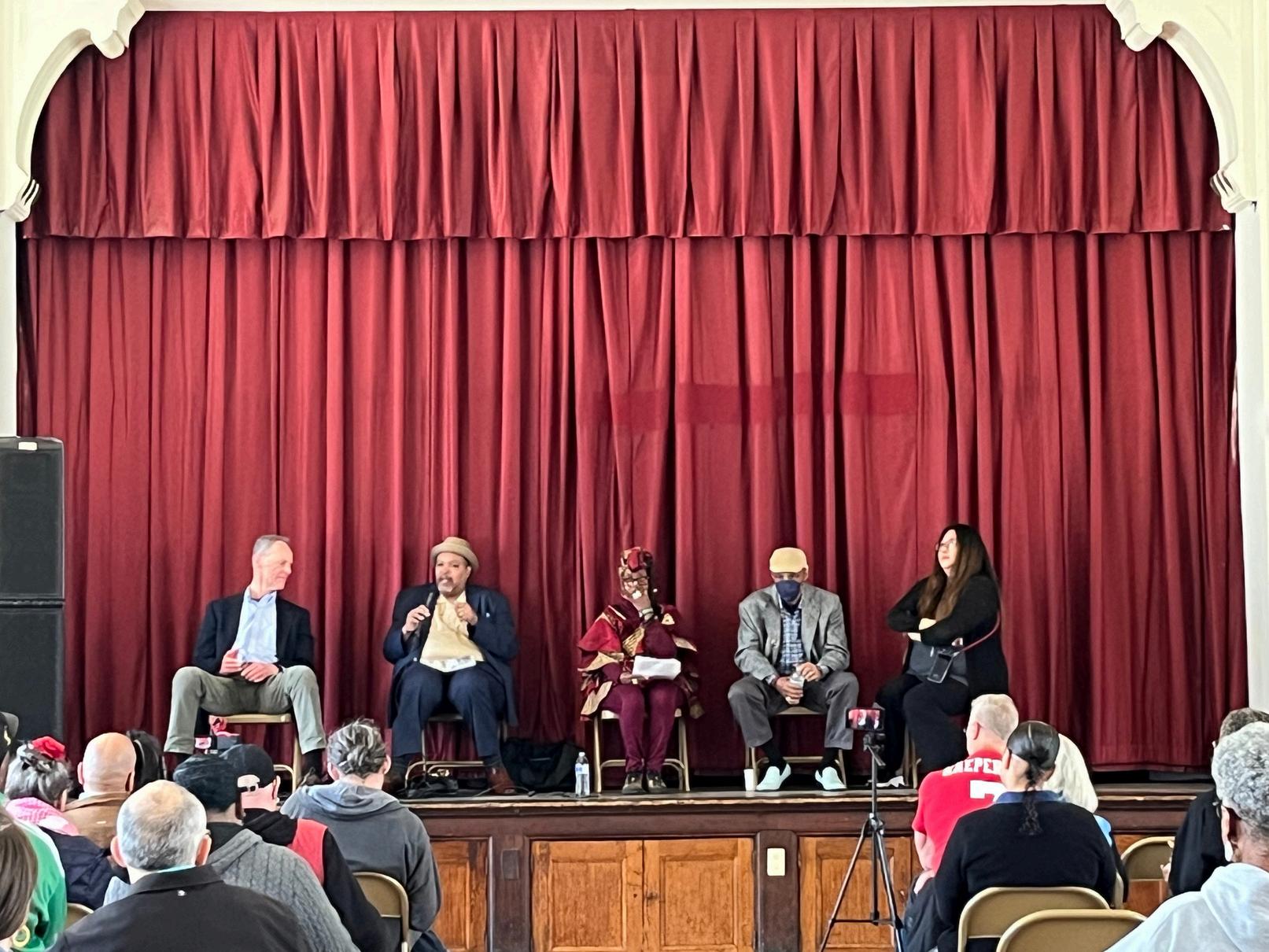
Dorothy Burge: Can you discuss how earlier fights for justice, like the campaign in the End of Death Penalty, and the Death Row 10, are connected to the fight for reparations?
Alice Kim: All right. Thanks for that question, Dorothy. Thank you, Mark, for organizing this panel and giving us all an opportunity to reflect on the history that led to reparations I guess I'm going to start. Before I get to the Death Row 10, I just want to say a word about May 6th, 2015, because I think many of us here in this room and on this stage speaking today were there at City Council, and it did feel miraculous and overwhelming to not only have the City Council unanimously vote in favor of reparations, but also to give a standing ovation to the survivors as Alderperson Joe Moreno read off the names of every survivor who was in that room I think it was overwhelming for us because of this long history of this fight. You hear John and you hear Greg talk about not feeling as if it were going to be possible to pass reparations That is a feeling I think that every one of us who are fighting for reparations felt If you think about Anthony Holmes' testimony when he testified during John Burge's sentencing hearing, he said that what hurt the most, more than the torture itself, more than all the years of incarceration that he faced, was being disbelieved
That was the climate, and those were the circumstances that people fought within. I think that that's important to remember because even in the face of what seems seeming hopelessness, people having the audacity to fight is what made a difference every single step of the way There were no victories in this fight that were granted from above.
Every single victory was hard fought for and won by the survivors themselves, their family members, lawyers, but also everyday activists and organizers who are out in the street. I think that's what got us to today. I know we're going to be talking about what still needs to be fought for But I do want to say also a word about connecting this to prior struggles We have Stanley Howard here, who is the co-founder of the Death Row 10. Hey, Stanley. When the Death Row 10 formed in 1998, it was right on the heels of Clinton's crime bill in 1994 We had Clinton pass more legislation so that more crimes would be punishable by the death penalty. He had money that put more cops out on the street. He passed truth-in-sentencing laws that extended the length of time people had to be in prison
This was part of building up America's prison nation That was the political climate. Andy Thayer is here who is from way back when, and I think you can probably remember being on the street, we didn't have the E-petitions in the same way we do today So you actually physically had to stand on the street, and ask people to sign a petition against the death penalty. And by and large, the climate did not support abolition of the death penalty By and large, people, and the majority of people in America supported the death penalty I think that it was in that context that Stanley and the other men on Death Row understood that they needed to wage a fight. The way that Stanley tells the story is that he wrote hundreds of letters to people to find supporters and organizers on the outside to fight with them on the inside. We were lucky enough, Noreen, myself, Andy, others, lucky enough to–we were organizing with the campaign to end the death penalty at the time, and we responded to their call I think that this call, the foresight that people inside had, that we needed to wage a grassroots fight with people on the outside that we could not rely on the regular mechanisms that actually existed was crucial and critical, and it came out of their own lived experience
I think that that is that lesson and then organizing with their mothers Now we have so many mothers and so many survivors, very central to the fight and leading the fight. I think that is an important through line from then and to today.
Dorothy Burge: Greg, how do you feel and what do you think the impact is of having the Chicago Torture Justice Center over the years?
Gregory Banks: The Center was a place that we wanted, where men and women getting out of prison to have a place to come to and would feel safe when they're telling their stories Because for a long time, you didn't... Being in the penitentiary, man, we never, ever talk about what happened to us. There was a number of people right above me and around me that I had no idea that they had been tortured exactly by the same individual. The people... I mean, I met so many people, man. I'm always grateful, man.
I'm a crybaby now. It was a long time. I didn’t cry for years, for many, many years. I think that it's refreshing now that I cry. I cry a lot now, man, because I didn't cry. Being in prison, man, it takes something It takes your humanity away from you It does a lot of that. It's guys in here, for instance, Anthony Holmes. Anthony Holmes did 33 years in the Illinois Department of Direction I knew it was times that he thought he was never going to get out
You got Jimmy [Soto]. He did, what, 42 years. I know it was time
He thought he wasn't going to never get out You got Stanley Stanley did almost 40 years I knew he thought, and he was on death row, so I know he thought he would never get out. It was time. Years go by, you start not thinking that you're going to go anywhere, man But it happened, man It happened I think that we don't mention the mothers enough Our mothers, man My mother died last year. She was 87 years old, so I got a chance to see my mother for the last 17 years. I got it around my neck right now My mother is in my heart She is always there You know your mom, man When Stanley came home and Stanley had a chance to see his mother alive again, I know that time came and he thought, Man, my mom will probably be dead when I get home And he had a chance to see his mother And when I seen that smile and that happiness on his face, I cried, man, because I know a lot of guys didn't get that chance. Their mothers and fathers died while they were incarcerated. And so, man, I'm grateful for everybody that's a part of this fight, and I'm going to always be grateful, man
Mark Clements: Maybe my history may not sound like your history, but it is true that men and women were taken down to police stations, and they were tortured, and they were treated like dogs, and no one gave a heck about them That's why I believe in reparations It brought an identity to other individuals that were tortured. It brought an identity to systemic layers of police misconduct that led to wrongful convictions, where we had states' attorneys that, guess what? They treated us like criminals just to go visit them at their own office. That's one thing, Kim Fox, I'm going to tell you, I was there. They didn't want me to go to her office. Hold on, I'm free. That's what you tell me, but now you want to tell me that there's a stop order on me from going upstairs? Just luckily, Kim walked in. I think that Kim identified that systemic layer of racism in one of her final articles that she gave to Chicago media. The reason I make that as a mention, and I put it with torture reparations If reparations never occurred, we would still be being treated as if we did not exist.
I'm
be
to , ho
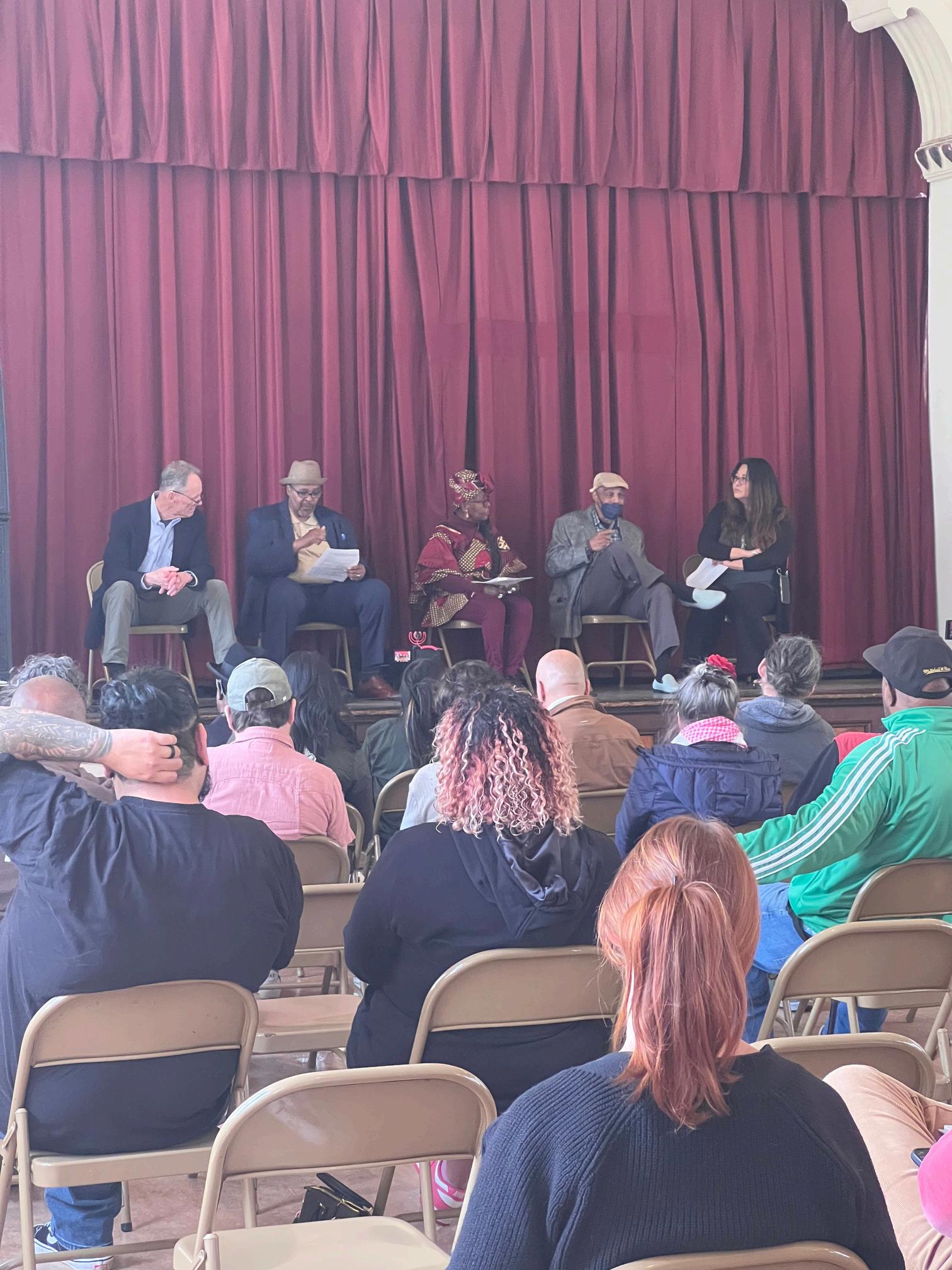
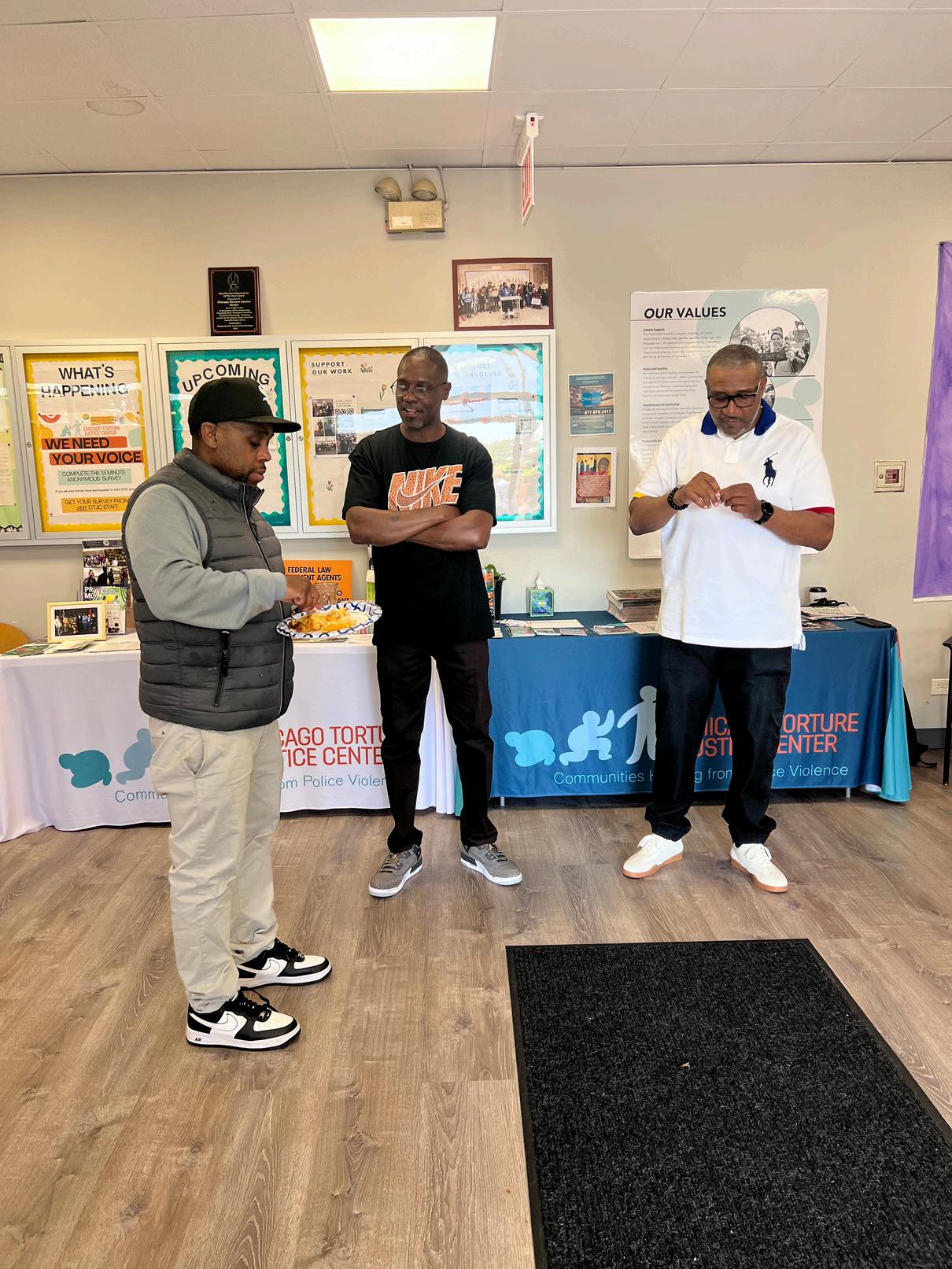
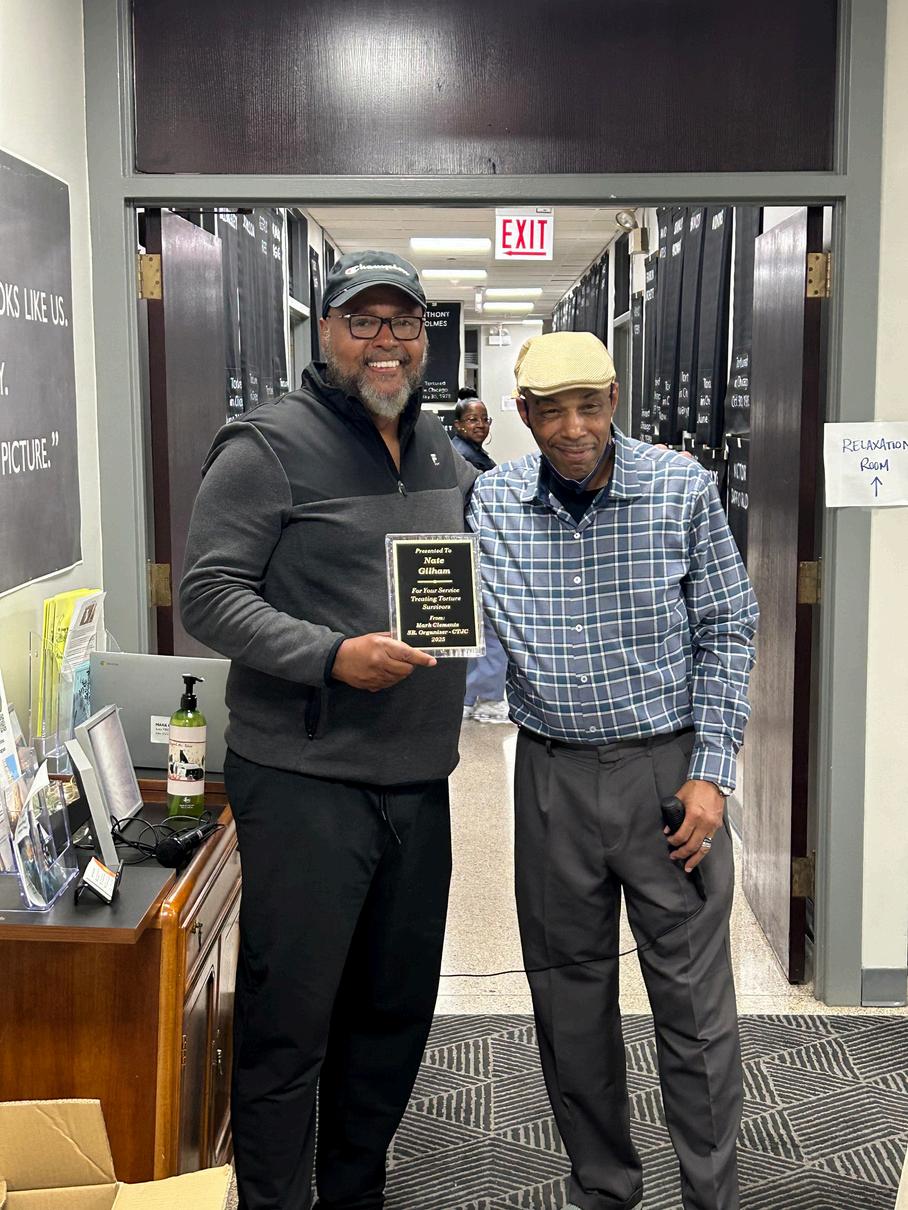
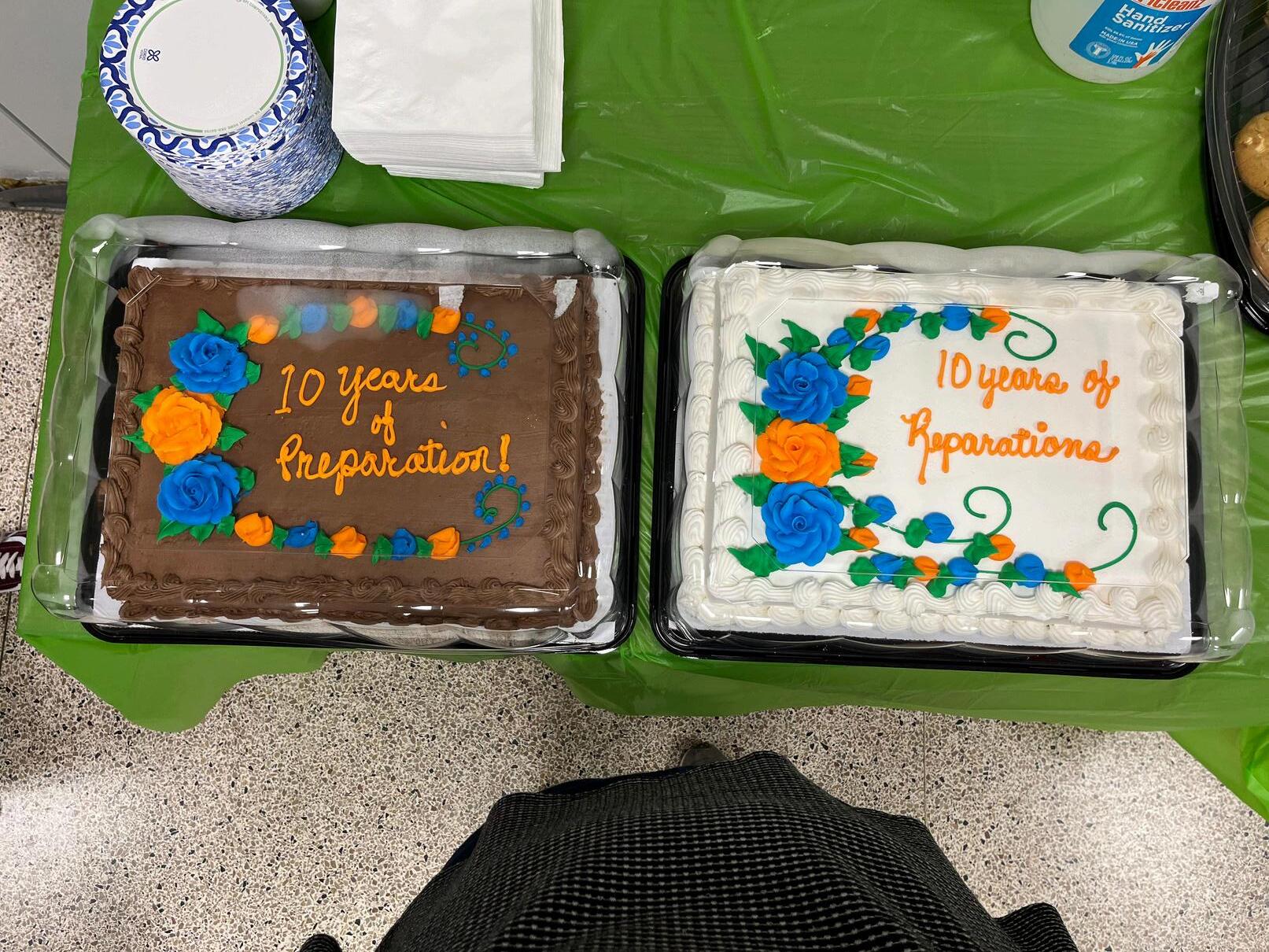
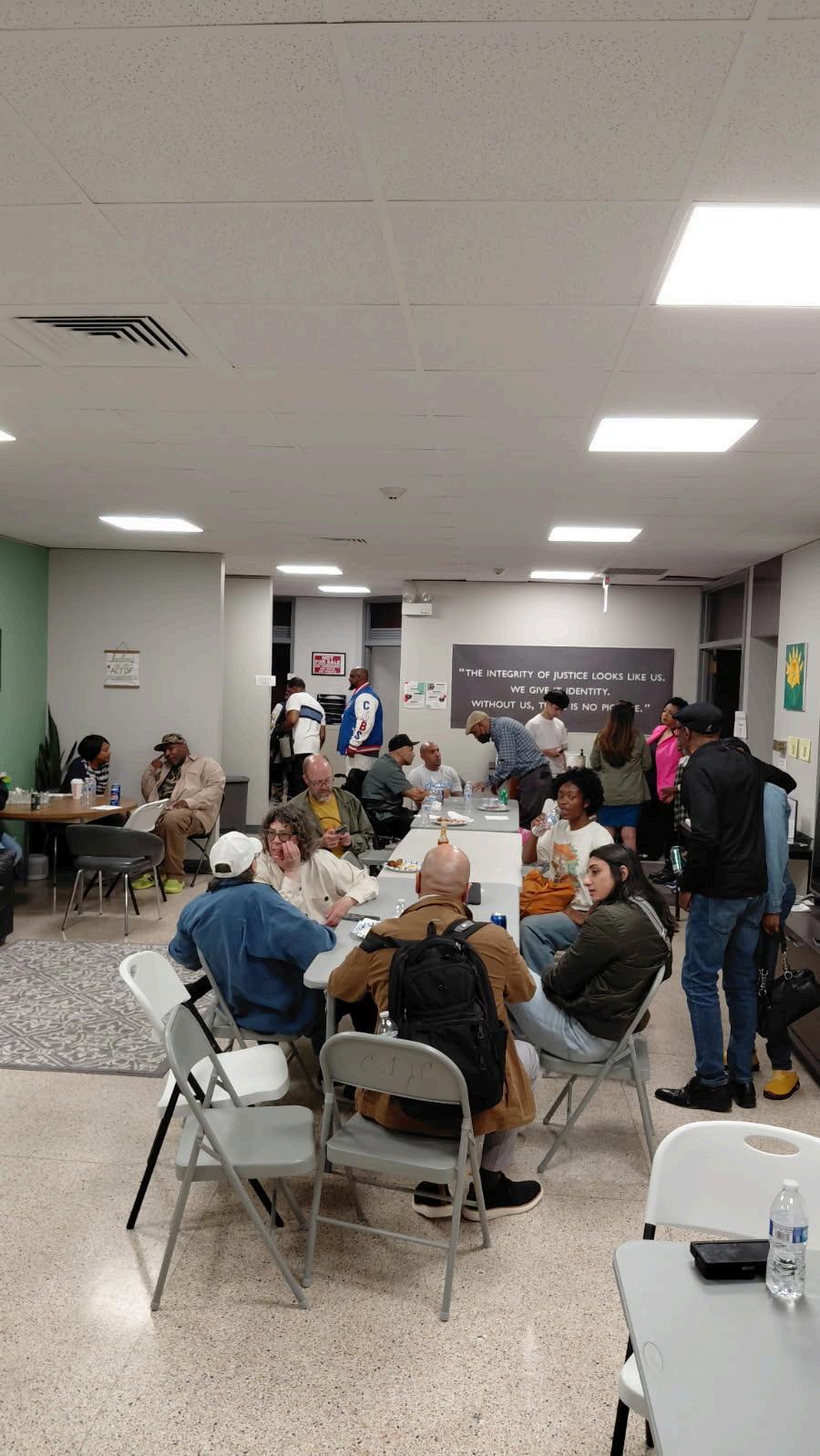
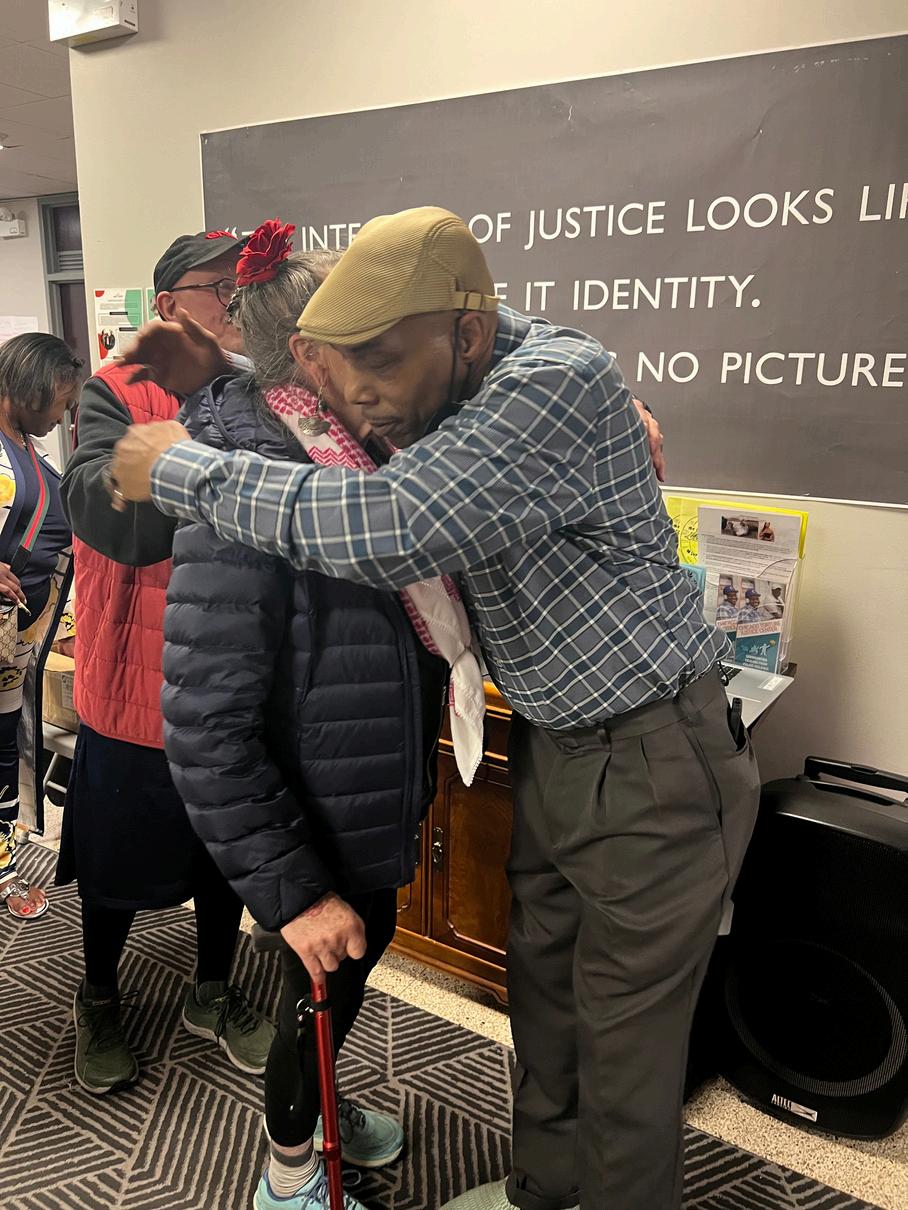
Community Updates & Events
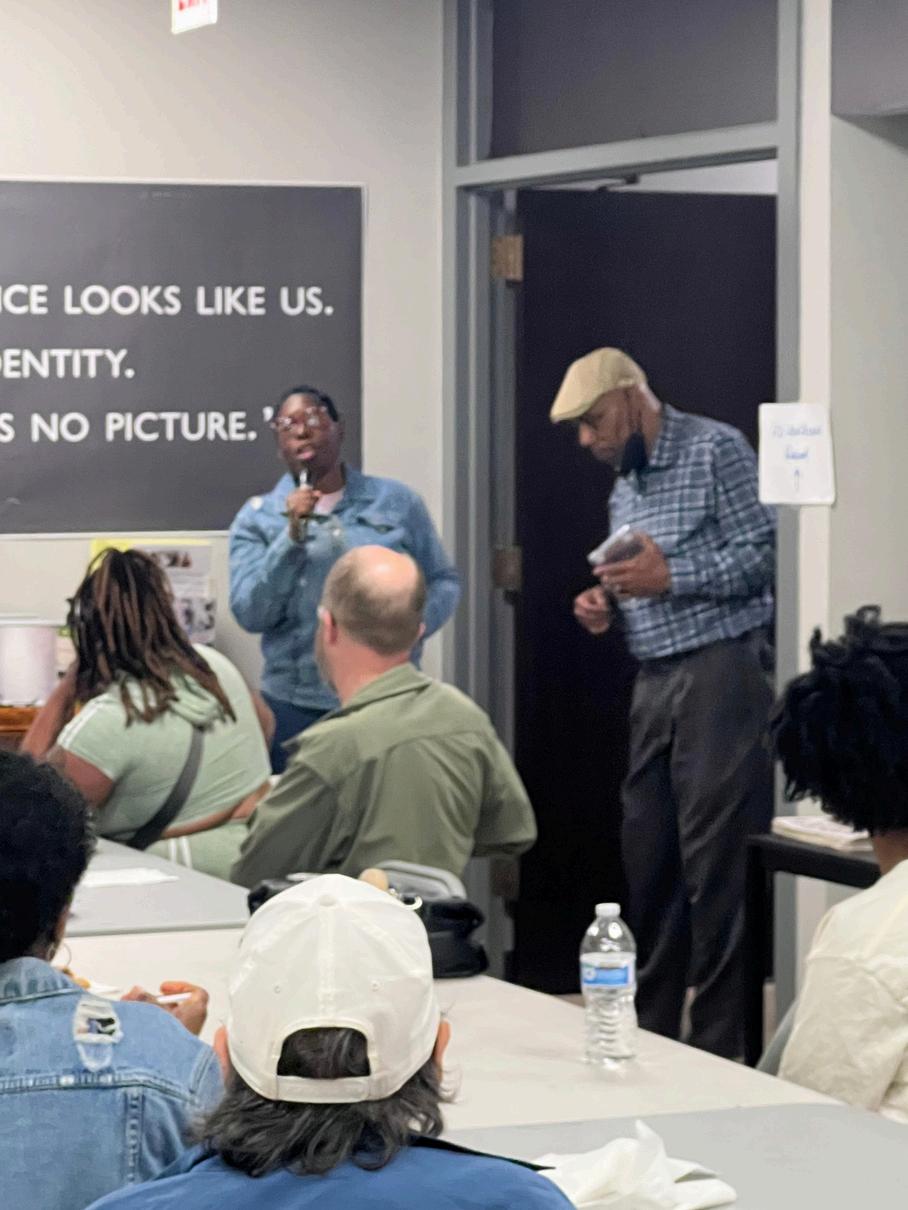
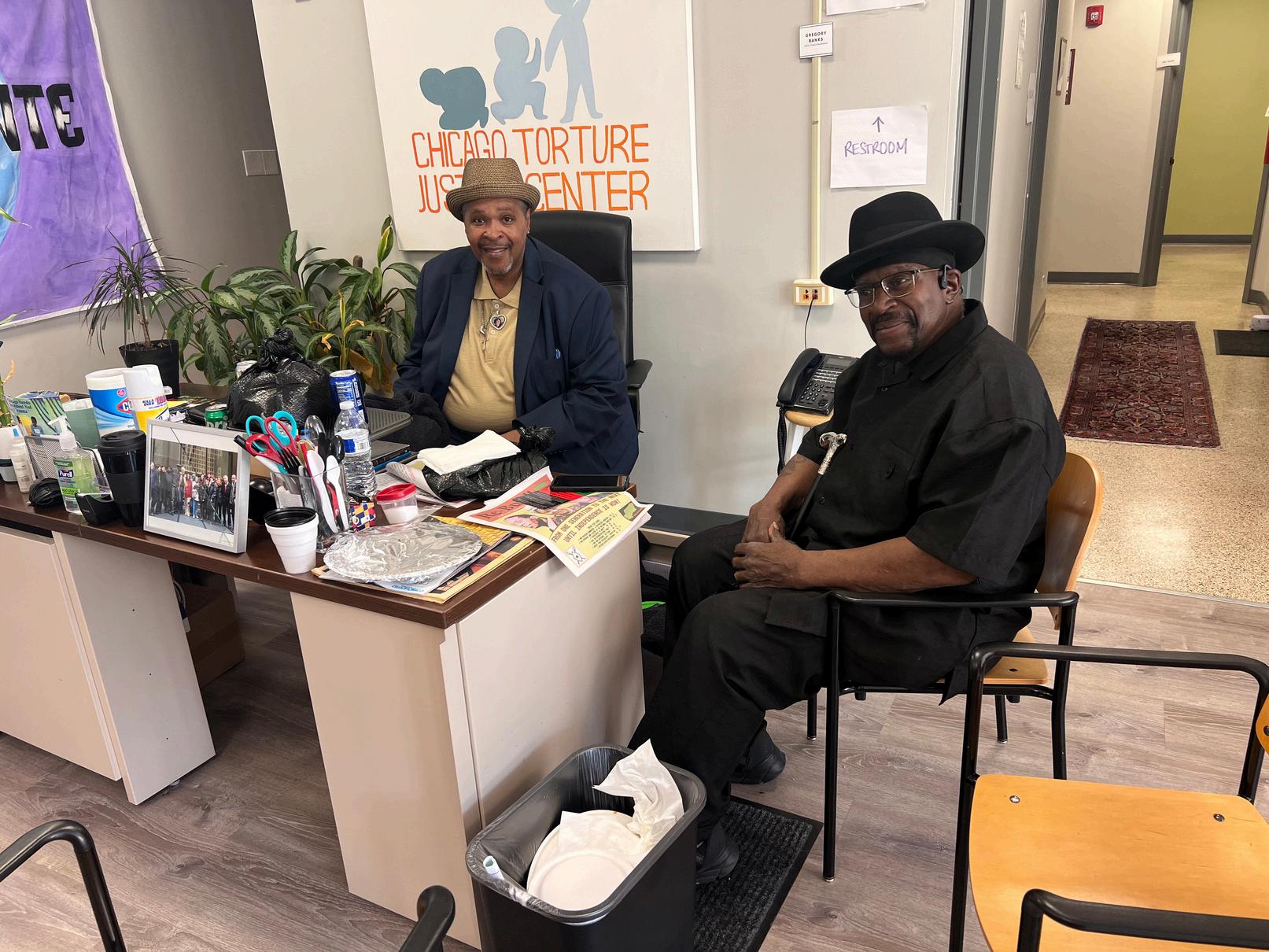
Jumpstart Youth, First Timers Program at Danville Correctional Center
The program was the idea of a current individual in custody named Xavier Anderson, a rehabilitated individual that has compassion and empathy Mr Anderson is trying to prevent a second time of incarceration by helping the youth and educating the first timers We are losing our youth to gun violence and drug overdoses, as well as mass incarceration. This program will educate them on Self-awareness and Self-awareness skills by taking control and ownership of their life, and the thought to take a proactive stance.
Mr Anderson sought out help through like-minded individuals that wanted to see change and wanted to help With being rehabilitated, educated and showing empathy as well as compassion along with two individuals, they created A Jump Start to Saving the Youth curriculum to present to the institution’s administration. Shortly thereafter, LTS Mr. Alex Bates and concerned administration staff, the Jump Start Program/Seminar was up and running. There are 30-40 youth individuals in custody attending a 6-7 week seminar/program that cover topics on Cultural Transmissions, Effective Communication, Men Roles, Self-awareness and Self-awareness skills, Critical Life Skills, Team Building Exercises, Taking Ownership and Control of Your Life, as well as Trauma Counseling and Trauma Exercises. During the 6 to 7 weeks, the participants are given the opportunity and a safe space to reflect on their past, the present where they are today, and a chance to prepare for a better future
Thank you for taking interest in how progressive we are trying to be here at Danville Correctional Center! The program was created in collaboration with the LTS Department, the Administration, the Intel Department at Danville CC and Individuals in Custody Xavier Anderson, Robert McCullough and Maurice Jones Danville CC accepts mail at 3820 East Main Street, Danville, IL 61834
If you have any resources to help these young men who really want to change and make a better life, we invite you to come speak and share any resources.
Respectfully,
Picturing Our Loved Ones Inside at Walls Turned Sideways
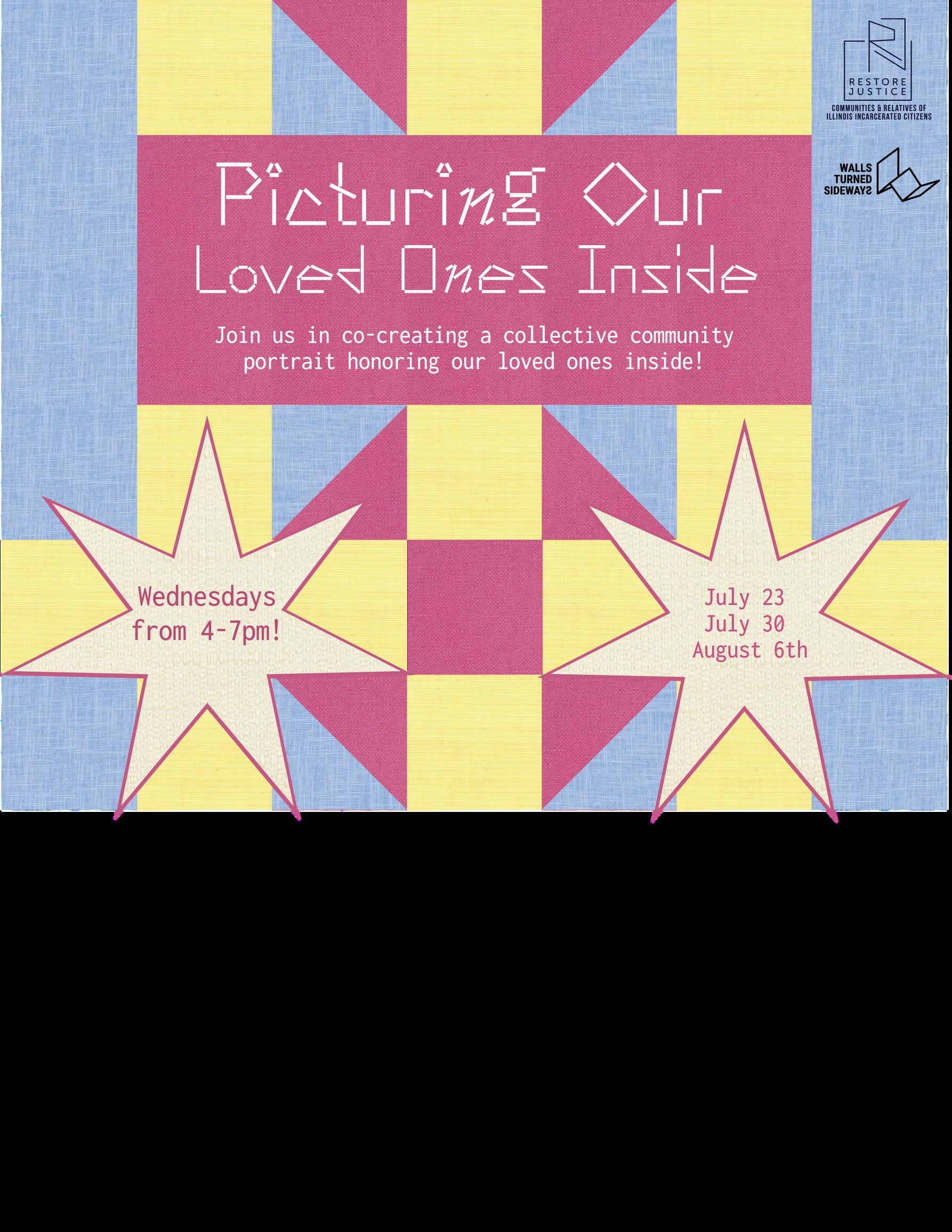

Join Wall Turned Sideways in co-creating a collective community portrait honoring our loved ones inside Over three workshops we will make fabric squares using paint, fabric, collage and stitching each representing a loved on inside. We will assemble these squares into a larger format "quilt" to take to rallies and hang in our spaces to remind audiences that we're fighting to free them. This program will be co-led by Communities and Relatives of Illinois Incarcerated Citizens, Walls Turned Sideways, and fiber artist and educator Stevie Emrich to support each participant in making a beautiful square. We'll have 3 sessions on Wednesday evening from 4pm-7pm! Drop in as many times as you need to complete you work
What to bring: bring any pictures or objects you'd like to add to your square We'll provide the fabric, paints, etc We have a basic copier if you have materials you'd like to copy. We'll also have a teaching artist working with us to help you make your idea into a beautiful piece! There is free street parking, along with a parking lot at Washtenaw and Madison. The parking lot signs says "Acorn Granite".
Send a Mother’s and Father’s Day message!
Mamas Activating Movements for Abolition & Solidarity (MAMAS) wants to show appreciation to the mamas and papas of the movement! If you have a message you’d like to send, you can share it to our mailing address below to “Chicago Torture Justice Center / MAMAS”.
The Toussaint Daniels Emerging Writers Award
The Chicago Torture Justice Center is partnering with The Mud Theatre Project to present the inaugural Toussaint Daniels Emerging Writers Award
The Toussaint Daniels Emerging Writers Award seeks to uplift incarcerated writers inside IDOC, and share their work with a broader audience. Toussaint Daniels is an award-winning playwright and poet, and founding member of The Mud Theatre Project Throughout his incarceration, Toussaint used writing as a form of expression and means of healing The Emerging Writers Award aims to support and encourage emerging artists to continue growing in their craft.
The 2025 Emerging Writers Award will focus on poetry.
The top 3 selected writers will each receive a prize of $200.
The top 10 selected works will be read aloud by Mud Theatre performers at the Resilience Arts Festival in the fall of 2025.
Submission requirements:
Writing submission must be poetry
Each individual may only submit one piece of work
At this time, submissions will be limited to those inside IDOC
Send submissions to: Mud Theatre Project 6337 S Woodlawn Ave Chicago, IL 60637
Submit by August 1st, 2025. Toussaint Daniels
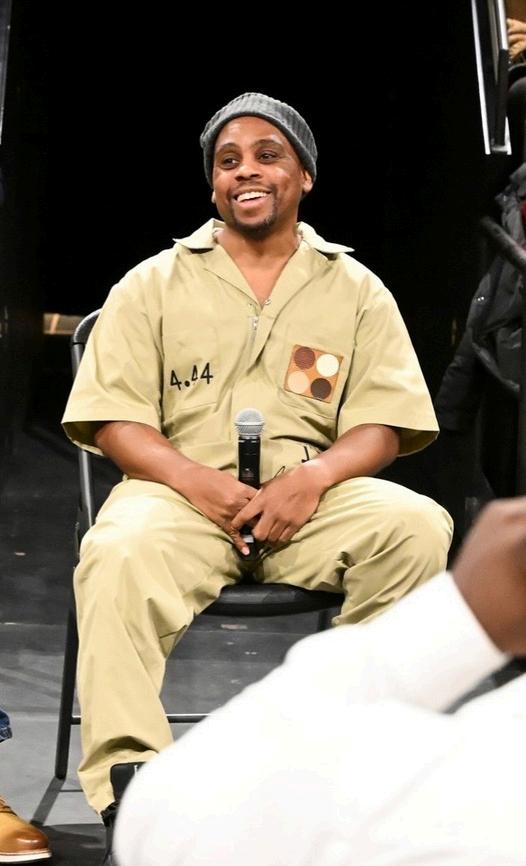
Voices From Inside
We are always grateful to hear from our community members inside! If you would like to be featured in the newsletter, write to us at the mailing address below. We accept artwork, all types of creative writing, and informative essays or articles. If your work is selected to be published, it may be lightly edited for clarity.
Music, Non-Believers, Reality
by Jose Saucedo
The thing that moves or inspires me in the my life wouldn’t necessarily be a person, even though it has a lot to do with people in general
It’s actually different moments in my life that I began to understand what it is that actually makes me wanna get moving every single day That thing I speak of are three words call music, non-believers, and last but not least, reality I truly receive a burning desire to push forward ‘cause of these words Allow me to demonstrate for my readers…
I’m an artist who goes by the name of STREETBABYGREEDY (SBG along with MR SLIMEBALL, being my alter ego I began creating songs back in 2020 for real for real I told another individual I was doing time with during chowline in Dixon CC, where I had a job occupation, that I would become a rapper and my name would be as I mentioned above. He laughed and said, “Greedy, you ain’t no rapper.” I looked him dead in his eyes and said, “I am ‘cause I said it!”
So, what I do? I began writing verses over other major artists such as Moneybagg Yo, G Herbo, and Doe Boy in order to develop better writing skills. It took me a while before I was comfortable picking an instrumental and just writing a song completely from scratch I would write a complete song in a day top, then practice it repetitively I believed in my craft so much, no matter who listened or not
I would love it when the guys around me said things like, “Bro that shit was hot”, or “Damn moe you snapped”! I always was grateful for good feedback, but in the same token the guys who wouldn’t gimme a compliment, let alone a head bob, something! That would trigger me I pay attention to my audience I look for those who are present that aren’t moving. Why? ‘Cause I know I believe there’s gotta be a way to get this person to move to my music. In a way, signs of no movement is clear body language that speaks volumes, so if you ain’t moving, you can’t believe in STREETBABYGREEDY music, and I love to make em believers! If not me, then who?
So what I do next? I tatted SBG real big on my left forearm for all to recognize, including SELF THIS IS REAL and I believe in my DREAM!
I began rapping any and everywhere, sharing my talent with my family over jail calls When I would share my music with those I cherish the most, they would on the surface applaud my craft, but I truly believe they thought I was going through a delusional phase that would eventually come to an end.
No sir! Here I am today 3/4/25, five years later, still writing music and perfected my form! I can rap with or without beats. I’m a poem writer as well. I’ve written books that will soon be available through Amazon. It’s funny how I would be an official author of a book before a rap artist.
I’ve participated in plays such as A Story About Violence with brothers who are now free and living the “dream” we all have! I’m mentioned in all sorts of articles for CTJC. I can show and prove what I’ve accomplished from prison during a 20 year sentence. Even when I was being MR. SLIMEBALL, meaning at my lowest, I still wrote music and pursued my dream Wanna know where disbelief being a motivator comes in?
Well, it’s always been there since the start of it all! I’m bigger and better than I was. Some people still question or some even say I need to face reality But my question to that is
whose reality?
Resilience
by Michael Carter
During the course of journeying on this platform called life
There began a horrific social encounter which fell on the fall of 1999
A young optimistic college freshman visiting home in Chicago for school break
Accosted by a beautiful petite woman who appeared blindfolded with a smile on her face
Pale, holding up scales with a sword, parted
Naively I engaged, expecting to be judged fair or impartial
Only to find her blindfolds to be transparent
Observing discriminatively, Black & brown people she didn’t see as equal
Proclaiming to be God fearing, she instituted oath upon the Bible to determine testimony as truth
Misleading her victims to believe that she was an entity of principle
Yet relegating certain citizens to indentured servants or chattel
As a result of this deception & torture came anger and trauma
Along with billows of dark depression
Suicidal thoughts saturating the mental
Simultaneously as my family seek to cope with the misfortune
Communication becomes broken
Loneliness welcomes despair
And out of this emotional dismal crypt, my soul utters a hymnal
A spiritual song designed to uplift you
Songs I’d learned as a child growing up in church at New Original
Galvanizing me to force forward in this adversity of injustice, by which I I was abducted
Despite the previous courts denying my appeals for 23 years unlawfully under rule 23
From which disappointment and loss of family members caused more trauma and isolation to escape reality
Nevertheless, the desire to exist with meaning cultivated my spirituality
Furthermore, invoking the appetite to exercise, severing the yoke of laziness, despair and depression
Birthing vivaciousness
Obscurely adjusting from the misfortune of injustice
An acrimonious encounter digested and processed and concluded with a mindset with optimistic
Subsequently disengaging from the lady liberty to whom I will refer to as Ms Injustice
Terminating a horrific interaction that began in the fall of 1999
Resilience!
In search of the author
We received a submission to our ‘Prisoners First’ prompt earlier this year and we are looking for the author of an original piece! The Chicago Torture Justice Center newsletter is created by a small team, and while we try to stay as organized as possible, mistakes inevitably happen That said, we unfortunately misplaced the envelope the original essay came with, and therefore can no longer identify the author! If you are the original author of this essay and would like to be recognized or credited, please reach out to us. Even if you would like to stay anonymous, we would love to hear from you so that we can publish your work Here are the first few lines of the essay:
Chaos, corruption, and confusion has become the norm, in today’s society, inside and outside of these jails. For those of us who stand for order, structure, and progress we must unite and educate those around us.
